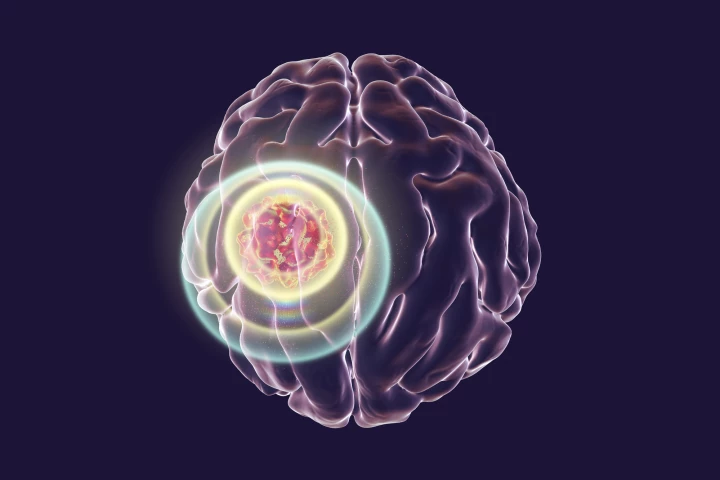Nanoparticles
-
Brain cancer is one of the most insidious forms of the disease, but a new wireless device could help improve survival times. When implanted between the skin and skull, the device uses infrared to heat up gold nanoparticles to kill cancer from within.
-
Getting cancer drugs to the right place in the right quantities is a perpetual problem for medical scientists, but a group from University of California, Los Angeles has developed a new drug delivery system to address the problem.
-
Researchers have created a new mRNA vaccine for cancer that’s designed to carry its cargo to the lymph nodes rather than the liver. Tests in mice showed significant inhibition of the tumors, with complete remission in a decent percentage of cases.
-
Glioblastoma is one of the most deadly forms of cancer, often returning with a vengeance after it's removed. A newly developed immunity-boosting hydrogel could be injected into the brain after surgery to clear out remaining cancer stem cells.
-
Like many menial tasks, there may soon be a way to outsource brushing your teeth to robots. A new system of microrobots can change shape to form bristles or floss, and don’t just brush plaque away but release antimicrobials to kill bad bacteria.
-
The blood-brain barrier keeps your brain safe from toxins, but frustratingly it also keeps important drugs out. MIT researchers have now demonstrated an accurate new model of how this barrier works, which should enable new brain cancer treatments.
-
For some time now, antimicrobial bioactive glass has been put forward for use in applications such as medical implants, hospital surfaces and wound dressings. Now, scientists report they have boosted its bacteria-killing effect by over 100 times.
-
A study from scientists at MIT has demonstrated a way to deliver mRNA directly to the digestive tract using a novel capsule. The researchers indicate this oral delivery system could be a unique way to administer mRNA therapies directly to the stomach.
-
Researchers have produced a novel nanoparticle-enhanced intranasal influenza vaccine. The results of a preclinical study demonstrate the unique nasal spray inducing robust local and systemic immune responses for over six months in animal models.
-
Researchers have developed a new nanotherapy to enhance the effectiveness of a type 1 diabetes treatment. The innovation packages immunosuppressive drugs into nanoparticles to reduce the likelihood of a body rejecting newly transplanted islet cells.
-
Although silver is highly effective at killing bacteria, it can also be toxic to humans in large amounts. That's where a new wound dressing is intended to come in, as it only releases its silver payload when infections are present.
-
For people with particularly cavity-prone teeth, daily brushing and flossing aren't always enough. A new treatment could help, as it uses tiny particles known as nanozymes to break down plaque and kill cavity-causing bacteria.
Load More











